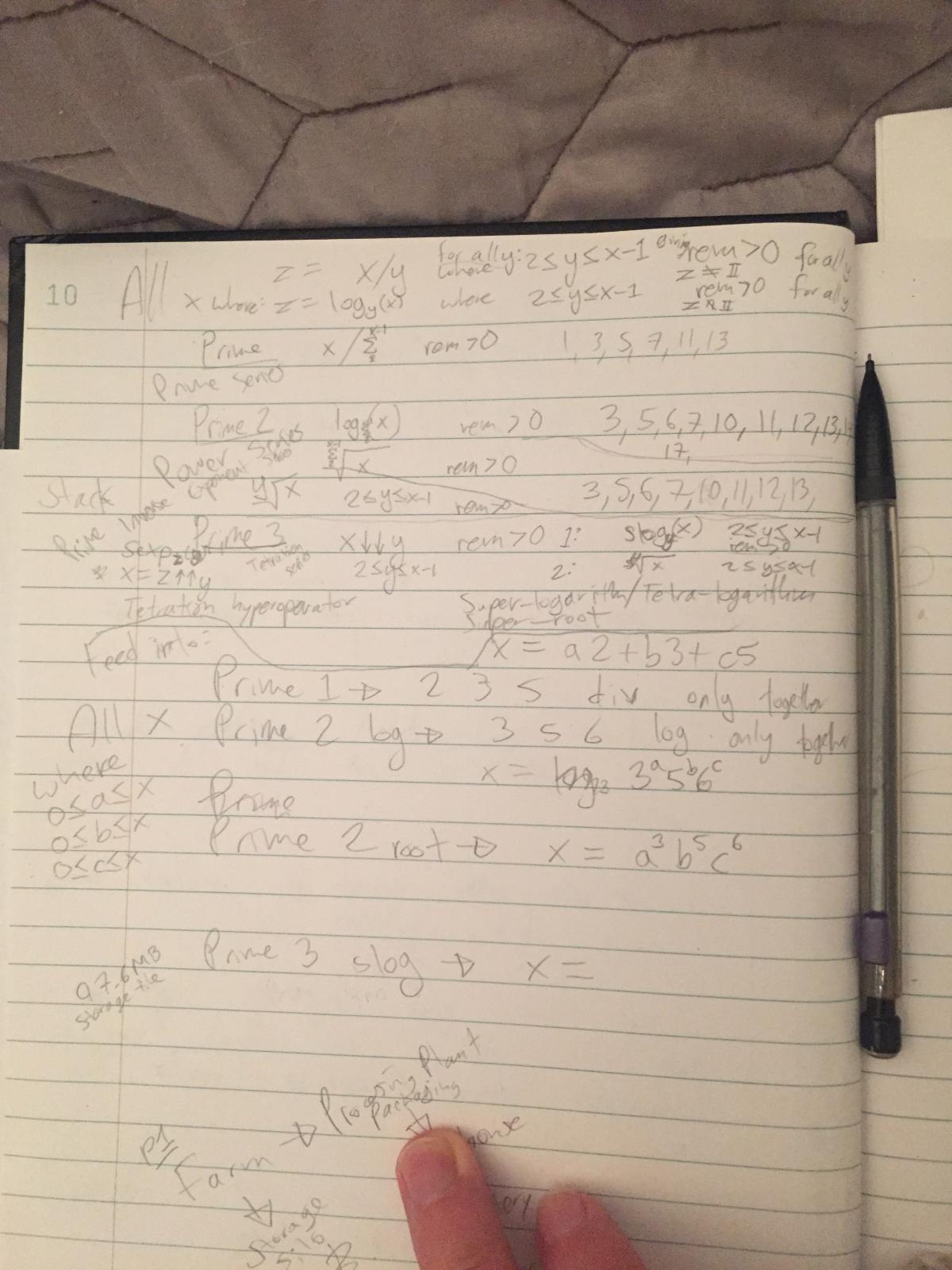For the next game idea, I'm going to have to explain two new things in two entries.
I came up with an idea of "cryptographic" like resources that are generated by computing power. Basically, they are like primes, and they can be traded, for example, if one player or factory doesn't have them, they can obtain them, if they're unique, and they can easily be checked to satisfy the requirements for being such a resource. And there are several, likely unlimited (this way) amount of different kinds of these "new prime". Some players could choose, based on past experience or the age and size of the game world, to aim their searches and explorations of these kinds of new primes into higher ranges (like digging deeper for minerals?). Different of these types of primes have different values depending on eg rarity, and not all of them are necessarily of the same distribution law, and some might be faster to find after a certain point, while others are different. But generally they get harder to find and therefore more valuable as more are found in the lower range or domain.
Here are some examples of them.
The only problem with them is that they are not all of equal valuable like other resources, and they don't have any value if they are not unique. In a way, they are non-competitive if you hold on to them (which might be against the game rules, but can probably be hacked), but it is competitive or destructive in the sense that obtaining one and trading it to somebody else makes it impossible for somebody else to trade that person for the same one.
The "Prime Series":
The main idea behind primes is that forz = x / y
for all y it must be satisfied thatz <= y <= x - 1
giving remainder > 0 for an integer-only division result, for all y. And "x" is the prime. For all "x / [z to x-1]", the remainder will be > 0.
For this series we get: 1, 3, 5, 7, 11, 13...
The "Power Series" and "Inverse Exponent Series":
We can extend this to:z = logy(x)
Which gives the series: 3, 5, 6, 7, 10, 11, 12, 13, 14, 17... (Correct me if I'm wrong, I'm just writing it as I put it down in the notes.) Which means that "y" to the power of "z" must give "x". In a lot of cases, the "x^z" will be less than "x", which means a remainder. For all "[z to x-1]root(x)", the remainder will be > 0.
Another one is:z = yroot(x)
Which is in the same class. We get the same series: 3, 5, 6, 7, 10, 11, 12, 13...
"Tetration Series":
Named so after the tetration hyper-operator.
Forsexpz(y)
Orx down down y
Orx = z up up y
Orslogy(x)
Orsyroot(x)
The "super-logarithm" / "tetra-logarithm", and "super-root".
These may be problematic as occurances of these "primes" may be too often, even at higher levels. They may be a lower-value currency.
These may feed into, or by themselves, give the following series, which can be extended to as many series as needed.x = a2 + b3 + c5
The "Primes Series" is fed into this (2,3,5) to give the coefficients, and all the occurances of x, where0 <= a <= x0 <= b <= x0 <= c <= x
Must be satisfied. This is like "find the biggest 105th x such that it is only a sum of the primes 2, 3, 7," etc.
The "Power Series" or "Prime Inverse Exponent Series" is fed into this:x = log3(a) log5(b) log6(c)x = 3^a 5^b 6^c
Where the same conditions for a, b, c, and x must be met as above. (Actually this is for the "logarithm series").
The "Root Series" is fed into:x = a^3 b^5 c^6
Etc...
For the "Super-Logarithm Series" I have not finished thinking through, but it can probably be done the same way. That is all for now. Maybe I'll get some strength to write more tomorrow.
[edit] Sorry if this is boring and geeky but I found this fascinating when making this, when I got the idea from reading up tetration operators, and imagining that there must be an endless series of operators. The player will not notice any of these primes or technicalities and would probably just see resources, or behavior of factories or buildings, and how fast they produce new resources, or maybe they will only see numbers, if they want to micro-manage them. If you do find this boring, well, I don't know what you're doing on a game-dev forum, because you have to be technically inclined and dig in and understand these things to do any good work. This could also have an application as a crypto-currency, who knows, and this may all be a lot more fun in action than it is reading it in snail-pace slow-motion.
